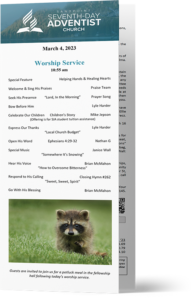
Real Friends: How to Comfort Those Who Mourn
Job 13 – 39
Intro:
How many of you appreciate good friends? Have you ever thought to yourself, “What makes a good friend?”
I want to encourage you to pull out your phones and text this number ____________ in one word describe a good friend — What is a good friend to you?
[READ TEXT MESSAGES]
Friendship is vitally important — It is a human need, hard-wired into us from the beginning
[Gen 2:18 NIV] 18 The LORD God said, “It is not good for the man to be alone…
God created to need relationships and to seek for relationships with others — so this morning we are going to talk about how to develop and maintain good relationships from the biblical story of Job. The principles that jump out of the story of Job are filled with lessons that can help your relationship with your: Children, Spouse, Church Members, Community Friends, Neighbors, Co-workers.
Because if we are going to have good friends in our lives, we first need to learn how to be good friends in the lives of others.
[Pro 18:24 NKJV] 24 A man [who has] friends must himself be friendly…
So this morning we are going to delve deeper not only into the story and example of Job, but we are going to examine the type of friends who sat with Job in his grief. Understanding grief and suffering can help us to become better friends
So here are three areas I hope we can understand better in the sermon today to increase our own ability to become better friends to those around us, and maybe help us chose better friends who will walk with us through our most difficult points in our life:
#1 — Real Friends are developed as we understand God’s perspective better
#2 — Real Friends are developed as we understand each others perspective better
#3 — Real Friends are developed as we learn how to respond better
I’m going to flesh these three areas out in the story of Job and create a solid foundation from which to build on in any relationship you have in your life.
We start this morning with Eliphaz’ description of how these friends, including Eliphas, view Job in Job chapter 4.
Now just as some background: Job has just lost everything in his life. His camels, his donkey’s, the vast majority of his servants, his homes, and his kids have all been destroyed — and to top off his misery, he has a painful skin infection that is causing sensitive boils all over his body even on the soles of his feet. In short, this man is in absolute misery! Job’s response? [Job 3:1 NKJV] 1 After this Job opened his mouth and cursed the day of his [birth].
Did you ever know someone in your life who just seemed to have bad luck wherever they went? I had a friend who seemed to be plagued by bad luck — he’d walk into a public restroom and invariably some long wet piece of toilet paper would stick to his shoe and he’d come waltzing out of that public restroom dragging around what looked like four foot long sea creature — of course embarrassing us all… Or another one who would walk through the house and invariably be the only one who would step on a lone staple, or safety pin, or other hazard. A hundred people could walk that same path, and they’d find the one hazard sticking in the carpet.
I can only imagine how Job’s friends felt hearing the story of his tragedy — How do you even explain what seems to be purely bad luck? But these friends respond in the right way to Job — they just sit with him in silence.
Now the friends of Job are Eliphaz who is the oldest and most respected of Job’s friends who came from an area we call Yemen today, then you had Bildad the Shuahite who was a descendent of Abraham’s wife Katura and lived in Northern Arabia, and lastly Zophar who is probably the youngest since he only speaks twice. Zophar’s name means the ear-piercing high pitched chirp of a bird and he is perhaps the most blunt of all the friends of Job.
These three friends do the right thing at the beginning and simply come and sit with Job in his pain in absolute silence for seven days and seven nights — one whole week!
[Job 2:13 NKJV] 13 So they sat down with him on the ground seven days and seven nights, and no one spoke a word to him, for they saw that [his] grief was very great.
Right here is one of the most important lessons about being a real friend to those who are hurting. When someone is in pain or has experienced great loss, you don’t have to have all the right words or really any words to provide the comfort that is needed — It can mean the world for you to just show up and sit with them.
Anyone here who has felt comfort from another person without them saying a word to you (raise your hand)? Friends, don’t feel burdened to break the silence… If you don’t know what to say “just hold your child in your lap”, “touch your wife or husbands hand in the car”, “just hug a friend who is going through a lot right now”, “Just show up to the house of one who is hurting” — Your physical presence sometimes communicates all the care and comfort that is needed in that moment as the person processes their own pain.
I commend Job’s friends — they started off right! This is a role-model to all of us of being a real friends.
PRINCIPLE #1 — BE PRESENT — Real Friends are There For You. They show up when you are hurting or are in need!
Jesus knows what it’s like to be deserted by friends — at his greatest need his disciples fled:
[Mar 14:50 NIV] 50 Then everyone deserted him and fled.
Paul knows what it’s like to be abandoned by friends at his most trying moment
[2Ti 4:16 NIV] 16 At my first defense, no one came to my support, but everyone deserted me. May it not be held against them.
but Paul adds this line after saying his friends had abandoned him
[2Ti 4:17 NIV] 17 But the Lord stood at my side and gave me strength…
You will never have a more true friend than God who will never leave you or forsake you and in your most trying moments, even if everyone else deserts you He still upholds the first principle of being a friend — He is there! He is present! He shows up!
If you want to know how someone in grief feels when no one calls or comes by or shows up —
David wrote it down:
[Psa 31:12 NIV] 12 I am forgotten as though I were dead; I have become like broken pottery.
Has anyone ever felt that way?
This is why the Bible commands us to visit widows and orphans — You don’t have to have the right words, but just show up, be present, let them know that you recognize they are alone and hurting — and friends when we do this we not only earn the title of a “Real Friend” but we are pleasing our heavenly Father and fulfilling His will:
[Jas 1:27 NKJV] 27 Pure and undefiled religion before God and the Father is this: to visit orphans and widows in their trouble, [and] to keep oneself unspotted from the world.
Wow! Great job Eliphaz, Bildad, and Zophar — They showed up, they were with Job, and they kept their opinions to themselves for one entire week!
Let me just hit this home-run to our families today — It’s not just Orphans and Widows that need you to show up. Your wife, your husband, your sons and daughters, your parents and grand parents need you to be present, to show up, to sit with them. Practice this in your family, and the example of Job’s three friends will bring a blessing to your home and won’t be quickly forgotten!
If only Job’s friends had kept it up… Later they begin accusing Job of wrong— what a way to encourage someone! But Job was far from being evil, in fact Job is himself an example of a true friend — and his own life reveals the secret of successful relationships. Listen to how Eliphaz describes the sort of friend Job was — Eliphaz is speaking to Job:
[Job 4:3-5 NKJV] 3 Surely you have instructed many, And you have strengthened weak hands. 4 Your words have upheld him who was stumbling, And you have strengthened the feeble knees; 5 But now it comes upon you, and you are weary; It touches you, and you are troubled.
Job was a great man and could have spent his time just ministering to himself from his luxury. When you have that many camels, you can trade them in for anything the ancient world could offer… But the testimony from Eliphaz is that Job took time to teach others — This principle is very close to the first one we went over “you have instructed many” — meaning a true friend invests in the success of others!
PRINCIPLE #2 — Invest in the success of others…
Job had learned the principles of success and he took time to teach others the principles he himself learned — not just secular principles on how to gain more camels, but Job had learned the secret of maintaining a relationship with God and Job cared for the spiritual well-being of those around him. The Bible says
[Job 1:5 NLT] 5 When these celebrations ended–sometimes after several days–Job would purify his children. He would get up early in the morning and offer a burnt offering for each of them. For Job said to himself, “Perhaps my children have sinned and have cursed God in their hearts.” This was Job’s regular practice.
True friends pray for others, they invest in others, they work towards the success of others — and if you want to know if you have Real Friends ask yourself the question: Do the people in my life only take? Do they invest in my success? Do they have my spiritual well-being in mind? Do they pray for me? Do they invest time in helping me improve?
[Phl 2:4 NLT] 4 Don’t look out only for your own interests, but take an interest in others, too.
Jesus is the ultimate example for us of what a Real Friend looks like — SELFLESS CARE FOR OTHERS! That’s the sort of person God wants you to be in your home, and that’s the sort of people you want to surround yourself with, because these are true friends.
But Job doesn’t stop with just teaching others — Eliphaz says that Job “strengthened the hands that were weak”
[Job 4:3-5 NKJV] 3 “… you have strengthened weak hands…”
When we look in the bible the hand is a symbol or metaphor for the work you are engaged in — The things you do…
[Ecc 9:10 NKJV] 10 Whatever your hand finds to do, do [it] with your might…
When the Bible tells us the Job “Strengthened the hands of the weak” it literally means that
Job encouraged those who wanted to give up doing whatever they were doing, to not give up! Keep going! You can accomplish the Job! We find that in Nehemiah just the opposite was happening — Sanballat, Tobiah and Geshem the Arab were all trying to discourage Nehemiah and the Jews who were working on rebuilding the wall. Notice how it says the discouragement came:
[Neh 6:9 NKJV] 9 For they all [were trying to] make us afraid, saying, “Their hands will be weakened in the work, and it will not be done.” Now therefore, [O God], strengthen my hands.
In Jeremiah, it says that the wicked “strengthen the hands” of those who do evil.
[Jer 23:14 NKJV] 14 Also I have seen a horrible thing in the prophets of Jerusalem: They commit adultery and walk in lies; They also strengthen the hands of evildoers, So that no one turns back from his wickedness…
Which of course means, the wicked encourage wickedness to continue… How much more should a real friend encourage righteousness to continue…
“Don’t give up praying” says the real friend “Don’t give up reading” says the real friend
“Don’t give up going to church” says the real friend
“Don’t give up Hope in God” says the true friend
Your children, your spouse, your friends at church or elsewhere need the words of affirmation and encouragement that can come from your lips — Affirmation is stating that a person is headed in the right direction. It confirms and strengthens others when we affirm them.
How many have witnessed their own kids being spurred on to work harder and do better when they receive words of affirmation? If you want to build strong bridges of friendship with others, practice affirming the right you see in their life — affirm their character “I really appreciated how honest you were”, affirm their choices “I really respect the good decision you made” affirm their work “I’m impressed by how well you did”
Even if someone already knows the good they are doing, it is good for your relationship for you to say it outloud — which communicates to them that you notice it as well.
[2Pe 1:12 NIV] 12 So I will always remind you of these things, even though you know them and are firmly established in the truth you now have.
[1Th 5:11 NIV] 11 Therefore encourage one another and build each other up…
[Heb 3:13 NIV] 13 But encourage one another daily…
When you affirm your wife, recognizing the good qualities you see (her character, her quality work, her good decisions) you are depositing currency in her heart — There is an invisible bank that needs daily deposits… Those deposits add up, and create internal resilience in your wife so that when she is hit with criticism, or misunderstanding, or a loss of some kind — these words of affirmation give her the ability to rebound and move forward. Same with husbands, they have a bank account as well.. So do kids! and so do our friends at church!
Don’t neglect depositing in those accounts — Real Friends, make regular deposits. They notice the work you are doing that is good, and encourage you to continue in that work and not to give up!
Again, if your friends don’t encourage you, don’t spur you on and lift you up, they may not be the best of friends to pull in close. You need people in your life who will encourage you to keep on the path of righteousness, who will lift up your hands when you are feeling weak like giving up.
PRINCIPLE #3 — Affirm and Encourage Others
Then Eliphaz mentions one more quality of Job as a real friend, we can’t miss:
[Job 4:3-5 NKJV] … Your words have upheld him who was stumbling, And you have strengthened the feeble knees…”
Weak knees and stumbling feet can knock you off the path or keep you from progressing in the right way.
The Bible says “All have sinned”
All we like sheep gone astray
We are all sinners
We all error
So how do we respond when our friends mess up, when our kids are stumbling, and we see that the spiritual knees of our spouse are weak? How do we respond when we believe that someone is in error or sliding in their duties or not living up to the light they have?
What did Job do? “Strengthened weak knees” through his words.
Illustration: I have had a problem with my legs sometimes where my Fibula rotates backwards on my leg, and it creates an incredible amount of pain to walk, especially down hill or down stairs… So what do you do when you can’t walk straight or painfree? You go to specialist, a physical therapist — and I went to see our esteemed local physical therapist at the YMCA. And He carefully placed tape on my leg to help pull that bone back into place so that it relieved the pressure on the nerve and allowed me to walk easier.
Job was like a physical therapist for the heart — when someone was stumbling, he immediately stepped in to support the area where that person was weak, until they had enough strength and stability to walk on their own.
Here is the principle
PRINCIPLE #4: Support The Weak Areas
True friends, real friends, don’t batter and bash the weak areas in your life, making them weaker! Instead they support the weak areas, so that they can get stronger:
Exercise example: “Sarah says to Sally — I wish I could exercise more, but I just can’t motivate myself to get out of bed and on to the treadmill. What should Sally do if she wants to support Sarah? Hey Sarah, why don’t we work out together, I’ll come over in the mornings a few times a week. I know how much easier it is when you have a partner” is that a true friend? Strengthening weak knees!!!
Bible Study: “Bill says to Bob — I’m struggling in my devotional life, I just don’t know where to start. Bob says, well making a commitment can be a daunting task, but why don’t you start with something small (just 5 minutes a day from the Bible) here is the bible reading plan our church is following, and right here is the week we are on. You don’t even have to think about what to read next, just open the bible to the section for that week and read for five minutes. If you want to join my small group, we talk about these verse together each week. Would you like to join me?
An example of an unhelpful friend:
— Well Sarah if you don’t start exercising you are going to keel over dead some day — you know what they say, not exercising is as bad smoking. Hope you’re able to figure it out.
— You know Bill, if you can’t even read the Bible each day I can’t help but wonder if your even going to make it. Those who don’t read the Bible are in darkness. It’s a wonder you are still in church at all.
Do you see how the unhelpful approach weakens an area already weak — We do this when we see faults in others and really try to magnify them… But Job sets before us a different example, the example of a true friend “Strengthen the weak knees”
The book of Hebrews puts it this way:
[Heb 12:12-13 NKJV] 12 Therefore strengthen the hands which hang down, and the feeble knees, 13 and make straight paths for your feet, so that what is lame may not be dislocated, but rather be healed.
This is purpose of church:
[Heb 10:25 NIV] 25 not giving up meeting together, as some are in the habit of doing, but encouraging one another–and all the more as you see the Day approaching.
[Eph 4:29 NIV] 29 Do not let any unwholesome talk come out of your mouths, but only what is helpful for building others up according to their needs, that it may benefit those who listen.
Review of principles friendship we learned in Job:
PRINCIPLE #1 — BE PRESENT
PRINCIPLE #2 — INVEST IN THE SUCCESS OF OTHERS
PRINCIPLE #3 — AFFIRM AND ENCOURAGE
PRINCIPLE #4 — SUPPORT THE WEAK AREAS
We want to be this sort of friend for others, because this is the type of friend Christ is to us! It is Jesus who is present in our pain, Christ gave all so that we would succeed, He constantly affirms and encourages us, and when we faulter or fail Jesus doesn’t break the bruised read but offers support, mercy, and gentle grace in the areas where we have fallen so that in Him and through Him we can receive strength. Appeal:
Are you inspired to be a true friend to those in your life through these principles?
I’d also like to take this moment to also encourage you to reassess the friends you do have in your life, and ask yourself how can I not only be a real friend, but surround myself who also value what it means to be a real friend.
Before we close in prayer — If you haven’t yet joined one of our Dive Deeper groups, let me share how much more you will get out of the Dive Deeper study guides. In this story of Job’s friends we focused on what they did that was right, but there are some valuable lessons mentioned in the dive deeper books of areas they made missteps as friends and this study can help take your friendship to a new level in this lesson. We have some Dive Deeper books on the table, feel free to pick one up, and we will be starting new dive deeper groups in July for Q3, start thinking about whether you want to be a host home for one, or whether you want to join one.
The friends were looking for a reason for why Job had to suffer — Since there was no apparent reason, the friends could have chosen to not offer an explanation and rather chosen to accept that they were blind and God alone could see what they could not see….
In these moments, the golden answer is “I don’t know”, “I won’t pretend to know”, and “We don’t have to understand the reasons why” — But God knows and we can lean on Him.
If someone has clearly sinned — If it is evident that they have brought calamity on themselves — maybe this would justify suggesting this, but when we are blind to the reasons for suffering let us not presuppose or guess or conjecture, this only leads to deeper pain and perhaps confusion for those who have experienced loss.
but even if you do rebuke someone, make sure that the rebuke will be received for the scriptures say:
[Pro 9:8 NKJV] 8 Do not correct a scoffer, lest he hate you; Rebuke a wise [man], and he will love you.
Matthew Henry’s Commentary (Job 4): “We ought to be afraid of grieving any, especially those that are already in grief, lest we add affliction to the afflicted”
[Pro 25:11 NKJV] 11 A word fitly spoken [is like] apples of gold In settings of silver.
Was Job guilty of what Eliphaz spoke against Job?
A RIGHT UNDERSTANDING OF GOD
- **Eliphaz**:
- **Job 4:7-8**: “Remember now, who ever perished being innocent? Or where were the upright ever cut off? Even as I have seen, those who plow iniquity and sow trouble reap the same.”
- Eliphaz suggests that suffering is a consequence of sin, implying that Job’s suffering must be due to his wrongdoing.
- **Bildad**:
- **Job 18:5-6**: “The light of the wicked indeed goes out, and the flame of his fire does not shine. The light is dark in his tent, and his lamp beside him is put out.”
- Bildad associates the extinguishing of light with the wicked, implying that Job’s suffering is because he is not righteous.
- **Zophar**:
– **Job 20:27-29**: “The heavens will reveal his iniquity, and the earth will rise up against him. The increase of his house will depart, and his goods will flow away in the day of His wrath. This is the portion from God for a wicked man, the heritage appointed to him by God.” – Zophar asserts that divine retribution is upon Job due to his sins, reflecting a belief in direct correlation between sin and suffering.
This was not just a common view during the time of Job — the view that when we lose something or someone or experience suffering of any type, it is a direct result of unrighteousness or wrongness on our part. — This view as also predominant among the Jews during the time of Jesus:
[Jhn 9:1-2 NKJV] 1 Now as [Jesus] passed by, He saw a man who was blind from birth. 2 And His disciples asked Him, saying, “Rabbi, who sinned, this man or his parents, that he was born blind?”
Listen to how the Pharisees solved this mystery?
[Jhn 9:34 NKJV] 34 They answered and said to him, “You were completely born in sins, and are you teaching us?” And they cast him out.
He must have been born blind, because sin and thus God’s judgment rested upon him from birth. He was a cursed child! What an identity to bear, what a shameful cross to carry…
But Jesus rewrites his story and sets his birth all the way up in a correct setting by saying:
[Jhn 9:1-3 NKJV] 3 Jesus answered, “Neither this man nor his parents sinned, but that the works of God should be revealed in him.
### Job’s Defense:
- **Job’s Integrity**:
- **Job 6:24-30**: “Teach me, and I will hold my tongue; cause me to understand wherein I have erred. How forceful are right words! But what does your arguing prove? Do you intend to rebuke my words, and the speeches of a desperate one, which are as wind? Yes, you overwhelm the fatherless, and you undermine your friend. Now therefore, be pleased to look at me; for I would never lie to your face. Yield now, let there be no injustice! Yes, concede, my righteousness still stands! Is there injustice on my tongue? Cannot my taste discern the unsavory?”
- Job challenges his friends to point out his sin, confident in his righteousness and questioning their harsh judgments.
- **Job’s Lament**:
- **Job 7:20-21**: “Have I sinned? What have I done to You, O watcher of men? Why have You set me as Your target, so that I am a burden to myself? Why then do You not pardon my transgression, and take away my iniquity? For now I will lie down in the dust, and You will seek me diligently, but I will no longer be.”
- Job pleads with God, questioning why he is being targeted if he has sinned and expressing his despair.
- **Job’s Assertion of Innocence**:
- **Job 23:10-12**: “But He knows the way that I take; when He has tested me, I shall come forth as gold. My foot has held fast to His steps; I have kept His way and not turned aside. I have not departed from the commandment of His lips; I have treasured the words of His mouth more than my necessary food.”
- Job remains steadfast in his belief that he has followed God’s ways and maintained his integrity despite his suffering.
### Divine Resolution:
The tension is ultimately resolved when God speaks in Job 38-41, addressing Job out of the whirlwind. God does not provide a direct answer to Job’s suffering but emphasizes the vastness of divine wisdom and the limitations of human understanding.
- **God’s Response**:
- **Job 38:2-4**: “Who is this who darkens counsel by words without knowledge? Now prepare yourself like a man; I will question you, and you shall answer Me. Where were you when I laid the foundations of the earth? Tell Me, if you have understanding.”
- God challenges Job’s understanding of divine wisdom and the complexity of creation, highlighting that human beings cannot fully grasp divine justice.
- **Job’s Humble Response**:
- **Job 42:1-6**: “Then Job answered the Lord and said: ‘I know that You can do everything, and that no purpose of Yours can be withheld from You. You asked, “Who is this who hides counsel without knowledge?” Therefore I have uttered what I did not understand, things too wonderful for me, which I did not know. Listen, please, and let me speak; You said, “I will question you, and you shall answer Me.” I have heard of You by the hearing of the ear, but now my eye sees You. Therefore I abhor myself, and repent in dust and ashes.'”
- Job acknowledges God’s omnipotence and his own limited understanding, leading to his repentance.
### Conclusion:
The book of Job explores the profound mystery of suffering and challenges simplistic notions of divine retribution. Job’s friends represent the traditional view that suffering is a punishment for sin, while Job’s steadfast assertion of his innocence and the ultimate divine response underscore the complexity of God’s justice and the importance of faith and humility in the face of suffering.
A RIGHT UNDERSTANDING OF MAN
How can you be a friend to someone who is going through pain unless you understand the process of grief?
Phases of Mourning:
Stage 1: Denial — Not accepting reality
Stage 2: Anger — Intense emotions of loss and blame
Stage 3: “If Only” Stage (If only I had….Then this wouldn’t have happened)
Stage 4: Depression — “I can’t”
Stage 5: Acceptance — “I can” A mental shift happens
Stage 6: Reconstruction — An outward shift happens, new routines Stage 7: Hope — Feeling optimism about the future
You can not force someone to finish mourning, only they can decide
[Job 5:11 NKJV] 11 He sets on high those who are lowly, And those who mourn are lifted to safety.
[Job 29:25 NKJV] 25 I chose the way for them, and sat as chief; So I dwelt as a king in the army, As one [who] comforts mourners.
[Pro 25:20 NKJV] 20 [Like] one who takes away a garment in cold weather, [And like] vinegar on soda, [Is] one who sings songs to a heavy heart.
[Ecc 3:4 NKJV] 4 A time to weep, And a time to laugh; A time to mourn, And a time to dance;
[Ecc 7:4 NKJV] 4 The heart of the wise [is] in the house of mourning, But the heart of fools [is] in the house of mirth.
[Isa 57:18 NKJV] 18 I have seen his ways, and will heal him; I will also lead him, And restore comforts to him And to his mourners.
[Isa 61:2 NKJV] 2 To proclaim the acceptable year of the LORD, And the day of vengeance of our God; To comfort all who mourn,
[Isa 61:3 NKJV] 3 To console those who mourn in Zion, To give them beauty for ashes, The oil of joy for mourning, The garment of praise for the spirit of heaviness; That they may be called trees of righteousness, The planting of the LORD, that He may be glorified.”







